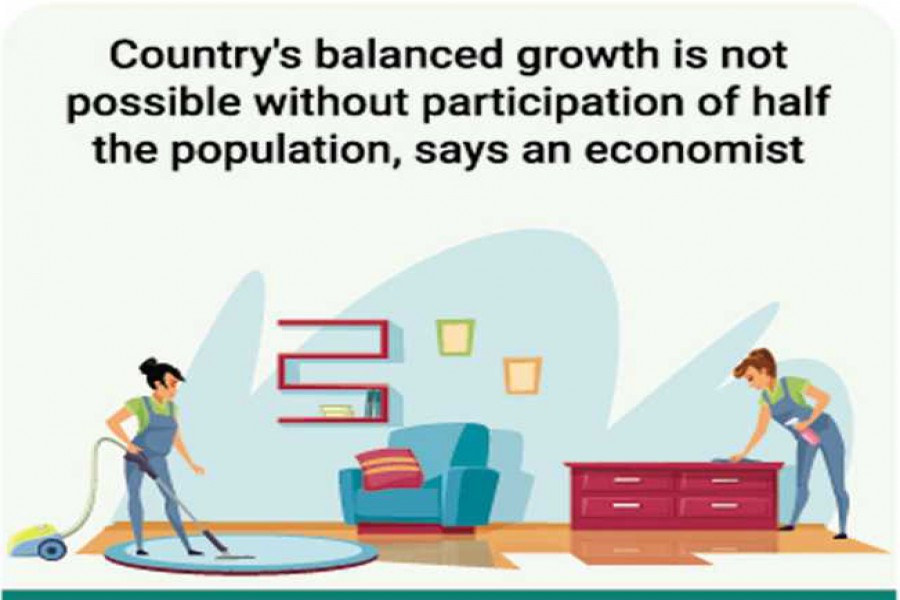Bangladesh's gender balance in employment is still in a bad shape as women spend only 1.2 hours a day for employment and related works while 5.9 hours for unpaid domestic and care works, a government survey showed.
In contrast, men utilise 6.1 hours daily for employment and relevant work, according to the Time Use Survey (TUS) 2021 conducted recently by Bangladesh Bureau of Statistics (BBS).
Economists said that since the government has failed to create adequate job opportunities for the women, the huge inequality in terms of employment status is persisting in the country despite a better economic progress.
The BBS's Labour Force Survey 2016-17 showed that the labour force participation rate was 36.3 per cent for women and 80.5 per cent for men.
According to the TUS 2021, women spend 4.6 hours in unpaid domestic works and 1.2 hours in unpaid care works at their homes daily. On the other hand, men use only 0.6 hours a day in unpaid domestic work and 0.2 hours in unpaid care work.
It, however, showed that men remain behind the women in the 'production of goods for own final use' category as the male spends 0.6 hours a day while women use 0.8 hours for the job.
In socialising and communication as well as community participation and religious practices, both men and women use almost similar time daily - 2.2 hours and 2.1 hours respectively.
For culture, leisure, mass media and sports activities, males spend 2.6 hours and females spend 2.7 hours a day, the BBS survey said.
It showed that both males and females use the highest time in self-care and maintenance (including sleeping and recreation) in their daily life -males 11.3 hours and females 10.9 hours daily.
In terms of employment and relevant activities, both men and women in urban areas are ahead of the rural areas, the TUS 2021 said, urban men use 6.6 hours and women 1.6 hours a day.
In rural areas, males use 5.9 hours in employment and relevant work and females utilise 1.1 hours a day.
Centre for Policy Dialogue (CPD) research director Dr Khandker Golam Moazzem told the FE that this survey has again proved that women's participation in employment is still very low in Bangladesh.
"If we want to improve the status of women employment, there is no way but to create more opportunities for females. Without participation of half of the population in the job market, the country's balanced growth is not possible," he said.
The CPD researcher suggested the government create some specialised job opportunities like care-giving services so that the current unpaid jobs could be brought under a formal employment status, said Dr Moazzem.
The government should create such kind of employment opportunities so that the female population can utilise their time in employment and other relevant paid jobs, he added.


